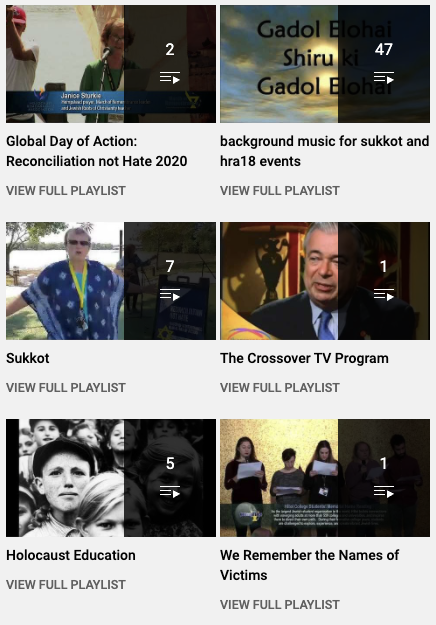June 19, 2025 – Dr. Susanna Kokkonen
Korach 5785 (2025)
Numbers 16:1 – 18:32 (Haftarah: 1 Sam. 11:14 – 12:22)
Korach, the name of the Torah portion in Hebrew, is a man’s name. It refers to a rebel and a rebellion against Moses and Aaron. The rebellion was led by Korach, Datham, Abiram and a staggering number of 250 of their followers. It is amazing that all these men were men of distinction. Korach for instance was from the tribe of Levi. The episode shows the dangers of such a rebellion. The rebels died unnatural deaths.
“They came as a group to oppose Moses and Aaron and said to them, “You have gone too far! The whole community is holy, every one of them, and the Lord is with them. Why then do you set yourselves above the Lord’s assembly?”
When Moses heard this, he fell facedown. Then he said to Korach and all his followers: “In the morning the Lord will show who belongs to him and who is holy, and he will have that person come near him. The man he chooses he will cause to come near him.“ (Numbers 16:3-6 NIV)
There are rabbinic traditions about why Moses said that God would do this in the morning. One of the traditions states that he gave the rebels time to reconsider and retract. This however did not happen.
“Then Moses said, “This is how you will know that the Lord has sent me to do all these things and that it was not my idea: If these men die a natural death and suffer the fate of all mankind, then the Lord has not sent me. But if the Lord brings about something totally new, and the earth opens its mouth and swallows them, with everything that belongs to them, and they go down alive into the realm of the dead, then you will know that these men have treated the Lord with contempt.” (Numbers 16:28-20 NIV)
As it was, something completely unnatural happened. The earth opened swallowing the rebel leaders and their families. Another 250 died by fire which came down from heaven and consumed them. There was also a plague. Moses -just like he did several times on the course of the desert journey- pleaded with God for the Israelites.

Following this incident, tribal leaders’ staffs were placed in the tent of the meeting. The one whom God would choose would have his stuff blossom. This would calm the community. Aaron’s staff blossomed with almond buds. There are different explanations as to why the blossoms were specifically almonds. I would like to give you my own explanation.
The Hebrew word for almond is shaked, which also means “to watch.” Prophet Jeremiah (Jeremiah 1:11-12) used the word in the context of God watching the fulfillment of His word. So, somehow, this flower is extremely fitting in this context too. God was watching. God spoke with Moses.
Aaron’ staff was to be a reminder to the Israelites that God had resolved this issue of leadership.
“The Lord said to Moses, “Put back Aaron’s staff in front of the ark of the covenant law, to be kept as a sign to the rebellious. This will put an end to their grumbling against me, so that they will not die.” Moses did just as the Lord commanded him.” (Numbers 17:10-11 NIV)
A King
The Haftarah portion tells us about King Saul. This is at the beginning of his kingship. God had decided to listen to the people and gave them a king like they wanted. This happened against Prophet Samuel’s wishes. Nevertheless, God told him to perform the necessary rituals.
“Samuel said to all Israel, “I have listened to everything you said to me and have set a king over you.” (1. Sam. 12:1)
At this point in time Samuel was also old, and, on this occasion, he was going over his time with the Israelites and ending his ministry.
“Samuel said to them, “The Lord is witness against you, and also his anointed is witness this day, that you have not found anything in my hand.” “He is witness,” they said.” (1. Sam. 12:5 NIV)
Samuel talked to the people, and they understood that God had been their king. It was an evil thing that they wanted a man, a king like all the other nations.
“The people all said to Samuel, “Pray to the Lord your God for your servants so that we will not die, for we have added to all our other sins the evil of asking for a king.” “Do not be afraid,” Samuel replied. “You have done all this evil; yet do not turn away from the Lord, but serve the Lord with all your heart.” (1. Sam. 12:19-20 NIV)
Despite the evil they had done, as the Bible repeatedly says, God does things for his own name’s sake. Samuel told the people that their future was secure – if they followed God.
“For the sake of his great name the Lord will not reject his people, because the Lord was pleased to make you his own.” (1. Sam. 12: 22 NIV)
Later, Saul caused his own tragic downfall as a king by his act of rebellion against God’s commandments.
Is there ever a justification for rebelling?
There is no doubt that the Bible as whole does not encourage rebelling against authority. But I am turning things around a little bit here and asking a question. Is it ever justified to rebel? Are there such evil leaders that we cannot obey?
Most Christians would start from the famous sentence in the Book of Acts where the apostles faced that choice. They clearly believed that in a situation where there is a contrast between the will of God and man, we are to obey God.
“Then Peter and the other apostles answered and said, We ought to obey God rather than men.” (Acts 5:29 NIV)
But most of us do not confront such clearcut situations. This issue is extremely significant because it brings us to both the Holocaust era and the New Testament. Let us look at it through Nazi Germany.
Nazi control over the society became tighter and tighter in 1933 and on. One of the most popular sermon texts was Romans 13:
“Let everyone be subject to the governing authorities, for there is no authority except that which God has established. The authorities that exist have been established by God. Consequently, whoever rebels against the authority is rebelling against what God has instituted, and those who do so will bring judgment on themselves. For rulers hold no terror for those who do right, but for those who do wrong. Do you want to be free from fear of the one in authority? Then do what is right and you will be commended. For the one in authority is God’s servant for your good. But if you do wrong, be afraid, for rulers do not bear the sword for no reason. They are God’s servants, agents of wrath to bring punishment on the wrongdoer. Therefore, it is necessary to submit to the authorities, not only because of possible punishment but also as a matter of conscience.” (Romans13:1-5 NIV)
What would a pastor do in this society?
Dietrich Bonhoeffer (1906-1945) came from the German aristocracy and, surprising his family, chose to become a Lutheran pastor. His life changed when in 1933 he understood what the Nazi regime was doing. But we all can imagine, that especially in Germany itself it was exceedingly hard to resist. In 1933 along with other pastors he became part of a group that would become the Confessing Church, a theological opposition group and a separate church.

Bonhoeffer had family members in Abwehr, Germany’s Military Intelligence. It was there that a rebellion was brewing. As a pastor, Dietrich Bonhoeffer pondered upon the morality of assassination. He finally concluded that he had to join the anti-Hitler conspiracy. On July 20, 1944, German military leaders attempted to assassinate Hitler. The attempt failed and the conspirators paid with their lives.
Among those arrested and imprisoned was Dietrich Bonhoeffer. Hitler gave the orders, and the executioners hanged him in April 1945 only weeks before liberation.
One of Bonhoeffer’s enduring thoughts was: “Silence in the face of evil is itself evil: God will not hold us guiltless. Not to speak is to speak. Not to act is to act.”
Bonhoeffer paid the ultimate price.
Choices can be hard. Maybe not today but one day we may confront a difficult choice.
May we be able to make the right choice.
*For an explanation of the terms see the first Pearls of The Torah Portion Blog.
| Coral and crystal cannot be mentioned, and the striving for wisdom [is more precious] than pearls. | רָאמ֣וֹת וְ֖גָבִישׁ לֹ֣א יִזָּכֵ֑ר וּמֶ֥שֶׁךְ חָ֜כְמָ֗ה מִפְּנִינִֽים: |
Job 28:18 (NKJV)
Again, the kingdom of heaven is like a merchant seeking beautiful pearls, who, when he had found one pearl of great price, went and sold all that he had and bought it.
Matthew 13:45-46 (NKJV)
Torah Scrolls were attacked and desecrated during the Holocaust. The enduring images of the Kristallnacht (November 9-10,1938) are those of synagogues on fire and Torah Scrolls burning. Some of these desecrated Torah Scrolls disappeared, others were buried. Some were lovingly rescued and are on display in museums in various locations.


